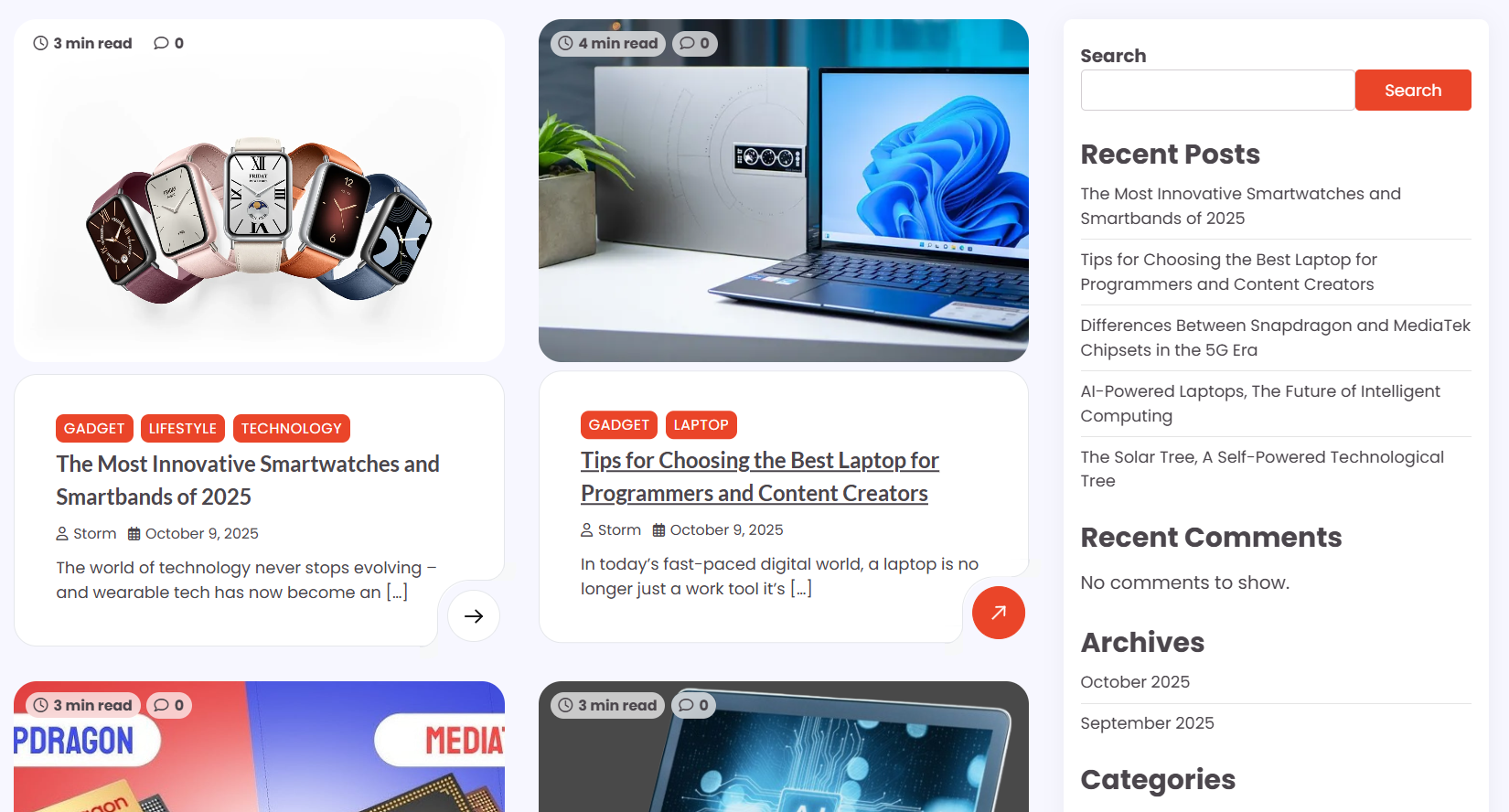
Blogging is one of the most effective ways to share ideas, build personal branding, or even make money online. However, for beginners, starting a blog can feel overwhelming from choosing a topic and writing engaging content to promoting it so it reaches a wider audience.
Here are some practical tips for beginner bloggers to help you write more engaging, consistent, and SEO-friendly content.
1. Define Your Purpose and Blog Topic
Before you start writing, decide the main purpose of your blog. Do you want to share personal experiences, discuss technology, give business tips, or review products?
Next, choose a niche a specific topic you’ll focus on. For example, if you’re passionate about food, focus on recipes, restaurant reviews, or cooking tips. Having a clear niche helps readers recognize your blog’s identity and makes it easier to build a loyal audience.

2. Craft an Engaging and Relevant Title
Your blog title is the first thing readers notice. Make it catchy, clear, and keyword-rich so it ranks better on Google.
Examples:
- “10 Blogging Tips for Beginners to Create Engaging Content”
- “How to Start a Personal Blog from Scratch and Make Money Online”
A strong title not only improves your click-through rate (CTR) but also helps your post stand out in search results.
3. Use a Clear and Readable Structure
Structure is key to readability. Organize your post like this:
- Introduction – explain the topic and what readers will gain.
- Main Content – divide it into several subheadings (H2, H3) for easy scanning.
- Conclusion – summarize the main points and add a call-to-action (e.g., leave a comment or share the post).
A well-structured article looks more professional and is easier to navigate both for readers and search engines.
4. Write in a Natural and Conversational Tone

Write as if you’re talking directly to your reader. Avoid overly formal or technical language (unless your topic requires it).
Use short, active sentences and get straight to the point. A natural, friendly tone keeps readers engaged and encourages them to read your post to the end.
5. Optimize for SEO (Search Engine Optimization)
To make sure your blog ranks high on Google, pay attention to these SEO basics:
- Use your main keyword naturally in the title, first paragraph, and subheadings.
- Add internal links (to your own posts) and external links (to reputable sources).
- Write a relevant meta title and meta description.
- Include images with alt text to make your post more attractive and SEO-friendly.
6. Stay Consistent with Your Writing and Publishing Schedule
Consistency is the key to blogging success. Set a schedule for example, post once or twice a week.
Regular writing helps improve your skills, builds reader trust, and boosts your site’s ranking over time.
7. Promote Your Blog
Don’t rely solely on Google for traffic. Share your posts on social media (Instagram, LinkedIn, Facebook, or X/Twitter).
Join blogging communities or online forums to network with other writers, exchange feedback, and increase your reach.
8. Analyze and Improve Your Content
Use tools like Google Analytics or Google Search Console to track your blog’s performance. Identify which topics attract the most readers and create similar content.
Update older articles periodically to keep them relevant and aligned with new trends.
ALSO SEE :
The Acid Lake of Kawah Ijen, Indonesia Nature’s Deadly Beauty
Conclusion
Blogging isn’t just about putting words on a page it’s about strategy, consistency, and delivering real value to your readers.
By mastering the basics of blog writing, optimizing for SEO, and continuously improving your content, you can build a successful and sustainable blog over time.
Start with one post and keep writing. Every new article is another step forward toward growing your blog and building your online influence.






